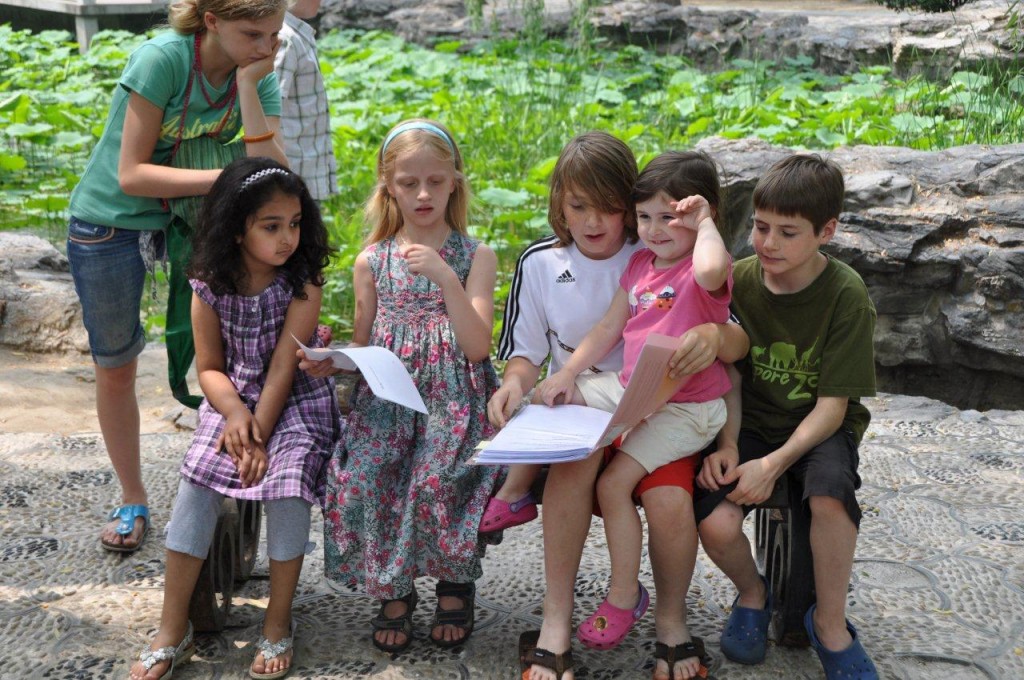Your global nomad, expatriate or third culture kid, whether moving from country to country or heading back home, is sure to be experiencing many typical issues coping with transition.
As parents you are usually so busy managing the family logistics of school choices, relocation and moving companies that it is easy to overlook or underplay your child’s challenges. This exhausting time can also mean that instead of the empathy you might usually feel for your child you get frustrated and angry with their presenting behaviors.

Reading their own stories from Slurping Soup and other confusions at Ritan Park, Beijing
Hitting a sibling, answering back, wanting to sleep with you may be presenting problems that are your child’s way of getting a need met for feeling secure again. Just as you have a buildup of tensions from having to deal with many known and unknown factors associated with change your child might displace these tensions through behaviors that are unacceptable to you.
You can help your child cope by keeping it REAL.
- Recognizing that presenting behaviors are not necessarily about the real problem. Take a deep breath, share your concerns about their unacceptable behavior, and then listen.
- Enlist their help to problem solve and brainstorm strategies to best help each other out as a family or individually during rough times. This is a preventive strategy and is solution-focused by providing hope when life can feel out of control.
- Acknowledge with your child the tensions in the household because of all the changes. This helps to normalize what is happening.
- Listen to your child not only when they tell you directly there is a problem but also when they are showing non-verbal cues that they have a problem.
Listening means providing opportunities such as one to one time where you give your full attention. This is not about you offering advice at this point but really acknowledging your child’s feelings and the fact of what is troubling them. This is called ‘active listening’ and needs to happen repeatedly so children have the opportunity to vent, release their heavy cloud of emotion and then more easily access their thinking ability. After this you can encourage them to brainstorm strategies for dealing with their problem and include your ideas as well.
What if there appears to be no solutions from your child’s perspective and they are very resistant to change? Sometimes it seems no matter what you do or say seems to help. This is when a third person, someone a child can relate to who has gone through similar experiences can help.
It can be difficult and confusing for a child to identify and raise concerns with friends and that’s why six expat parents (including me) have written a book titled, “Slurping soup and other confusions: true stories and activities to help third culture kids during transition.” It is a collection of twenty-three real life stories from third culture kids with a related activity for each story. www.slurpingsoup.com
The stories are a catalyst for crucial discussions that every expat family needs to have and explore: adapting to new environments; Who am I? Where do I belong?; home and family adjustment, cultural differences; friendship change.
Coping with change is not just about effective verbal communication however. Get outdoors, play sport, fly a kite, dance, sing, draw. Physical release and connection with nature is very therapeutic and helps dissolve physical tensions from emotional upsets.
Above all, build in some fun family time with hugs, laughter and sharing whether indoors or outdoors. This connecting time reassures your children that they have a safe haven wherever they may be in the world.

